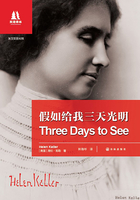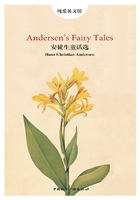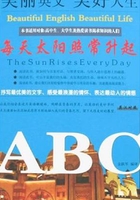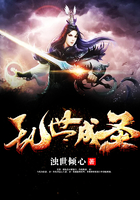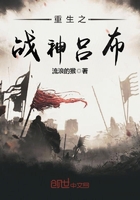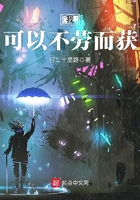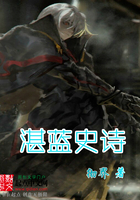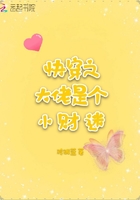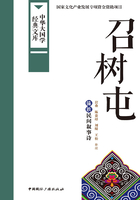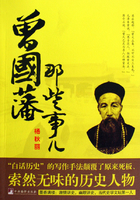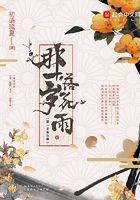The youngest soldier in the team was called Zhou Lang. He was a loading machine operator, and had been transferred from the Maintenance unit. When he sat in the driving chamber of the high loading machine, the people standing below could barely make out his silhouette. A soldier in a fellow unit saw the moving loader and said anxiously:"Hey, how is that loader moving with nobody driving it?" Zhou Lang's friend laughed by his side. "Stand somewhere higher and then you'll see." The soldier stood on a rock and looked, and then he saw Zhou Lang in the driver's seat. Zhou Lang always looked out with two bloodshot eyes. He operated the machine with single-hearted devotion, and he was very adept at his craft. The soldier said:"That lad is an odd one, isn't he?"
When we saw Zhou Lang on the construction site he had been operating for eighteen hours straight. When Zhou Lang was oiling the loader I took the opportunity to ask him:"I heard you've got liver disease and it's been bad lately. Why do you keep asking the detachment leaders to take part in relief work?"
He said, "When you've been working on the plateau for a long time, who hasn't got some sort of disease? What I have doesn't count as a disease round here."
"Aren't you tired from working straight for such a long time?""Yes, of course I'm tired; I'd be lying if I said I wasn't. We're made of iron and steel, but we all still get tired." He went on to say, "But when I see the water rising every day in the river I feel really uneasy, and I can't rest or sleep. If we don't get rid of the danger the dam will burst under the pressure from the river water, and then it will be even more of a problem. The road for a hundred kilometers or more downstream will be damaged, and it'll take years to repair. The Sichuan-Tibet Highway would be completely paralyzed. And that's saying nothing of the hamlets and Tibetan communities downstream. Who isn't worried about that?"
"Do you think it's diffcult being a soldier in the Transport Unit?"
"Yes, it's diffcult, very diffcult. Before I went up on the Sichuan-Tibet Highway I had heard people say that it was a painful struggle there, but then I couldn't even imagine how hard it is. I've got used to the suffering now, and I don't consider it diffcult any more. People elsewhere don't recognize good fortune because they already live in it; but we've stopped recognizing suffering because we inhabit it."
When I was on the relief site I met a bulldozer operator called Liang Mingwei. Liang Mingwei left two deep impressions on my mind. The first was what I heard others say about him during interviews. When Liang Mingwei's division received orders to aid the relief mission in Yigong, he was on study leave and was preparing to take the integrated admission exam for the Army College. For a soldier who joined up in a village, gaining admission to the college to study was extremely important. It determined his prospects and his fate. However, in this critical process that guided his fortune and his future prospects Liang Mingwei made the most diffcult decision of his life. He decided to drop the opportunity to take the exam and ask for permission to take part in the relief struggle in Yigong.
The unit was stationed 300 kilometers from Yigong. Time did not allow for him to drive a twenty-six-ton bulldozer there; it took at least eight or nine days to reach Yigong. The route was also too far and would damage the bulldozer too much. He therefore thought of a plan. He took apart the bulldozer and then shipped it to Yigong, where he rebuilt it. Transporting it in this way, piece by piece, what in the past would have taken four or five days now only took him three days. News of this feat amazed the mechanical engineers of the relief line. He left a deep impression on people.
I personally witnessed the second event. I was interviewing on the site on the day that it happened, and I heard that Liang Ming-wei's foot had been crushed by a bulldozer part. I hurried over to look. As I had expected, Liang Mingwei had been injured. The fingernail of the big toe of his right foot had come off. Blood had soaked through his rubber shoes. A medic was wrapping it up for him. Liang Mingwei's cracked mouth hurt so much that he cried out. His forehead sweated in a stream. However, when the medic had bound up the wound, he stood up and hobbled limply up onto the bulldozer.
The medic said:"Veteran Liang, you should go home and rest. You can't drive a bulldozer any more. If you do the wound will get inflamed and fester."
Liang Mingwei said:"If I rest what will you do with the bull-dozer?"
The medic replied, "The world will still keep on turning without you! Are you the only person on this site who can drive a bull-dozer?"
Liang Mingwei said, "I know my machine, and other men can't handle it. Also, I'm afraid other people will break it." When he had said what he had to say he chugged away on the bulldozer.
It was the same Liang Mingwei who, along with his bulldozer, was swept away by a mudslide three months later during another struggle to carry out relief work on the Sichuan-Tibet Highway. On the nineteenth of May, the plan to open a channel to drain away water came to a critical stage. The harsh natural environ-ment and the days and nights of work overload continued and continued, until men and machine were beaten down. Breakdowns and stoppages happened frequently.
One evening a bulldozer carrying out work suddenly stopped. The operator paced around the machine in a state of agitation, but could not find the source of the breakdown. The repair expert Lei Zhongying, the leader of the Machine Repair Team who had already worked on the site for two days and a night without rest, and had repaired six machines, arrived carrying a heavy box of tools on his back. He paid no heed to his tiredness, but climbed up and down checking and repairing. Heavy rain was falling, and the ground was turning into a quagmire. A short time later Lei Zhongying was covered in mud from head to toe, and his face was plastered with greasy dirt. Night fell gradually, and he had to lie down on the muddy ground to wield his torch and conduct the repairs.
Yang Chuantang, the vice-chairman of the Tibetan Autonomous Region and the Chief Marshal of the relief mission, happened to be passing through. He saw what was happening and knelt down on the ground, using the torch in his hand to shine light on the bulldozer for Lei Zhongying. Lei Zhongying, who was lying under-neath the machine, thought it was his comrade, and extended his hand, "Get me a spanner!" Vice-Chairman Yang quickly extracted the spanner from the box and handed it to Lei Zhongying. Lei Zhongying said, "Take out the pliers!" Vice-Chairman Yang took
out the pliers. Lei Zhongying rebuked him, "What are you doing? It's not this one, it's that big one! Vice-Chairman Yang thus quickly replaced the pliers he had taken out with a bigger set. Thus Vice-Chairman Yang acted as Lei Zhongying's repair assistant for half an hour in the heavy rain. When the bulldozer was repaired, Lei Zhongying climbed out from under the vehicle and saw the Chief Marshal of the relief mission kneeling on the ground, he scratched his dirty, mud-covered head in shame and said, "Chief Marshal! I didn't know it was you."
Yang Chuantang said in a jocular way: "I haven't formally become your pupil, but I've become your apprentice. You don't blame me, I hope?"
Lei Zhongying, who had been a soldier in the plateau for twenty years and had over ten years of experience fixing machinery, had to stand by the side of his broken bulldozer, and hear the roar of the two engines before he could judge correctly what the problem was. But even he, who was famed as the "divine fixer" who could remedy a breakdown anywhere and at any time, now found himself unable to get rid of the discomfort he felt inside.
Fifteen years earlier, when his wife had ascended the plateau to search for him, she had given birth to a son in that dreadful envi-ronment. However, the son was crippled from birth, and still could not stand. His wife stated categorically that her son's illness was a result of the plateau. He had no adequate response. All he could do was this: every time he was granted leave, he would take his wife and son to Guangzhou, to Beijing, to all manner of places, to find treatment for his son. In more than ten years since, he had spent almost of all of the leave he had been given to visit his family taking his son to the four corners of the earth to find medical help. In March that year, they finally heard of a hospital that specifically treated their son's ailment. However, at the same time he received an emergency telegram ordering him to take part in the Yigong relief mission. As a soldier, he had no other option. He readied his luggage, and stepped on a train to the west the very same day.
A year later I saw Lei Zhongying in the Third Detachment's base at Jiangyou. When I asked him about his son's condition, he said the operation had gone well, but his son no longer spoke to him. Lei Zhongying told me that after he had come to Tibet his wife had taken buses and trains and travelled thousands of kilometers to reach the hospital in northeast China to have the operation performed on her son. On the day of the operation the boy was very frightened, and was very keen to hear his father's voice to increase his courage to beat the illness. However, communication along the Sichuan-Tibet Highway was interrupted due to the land-slide, and so his son did not have his wish fulfilled.
Six months later Lei Zhongying returned home. He came to his son's sickbed, and said apologetically:"Son, Papa's come back late-I'm so sorry!" His son turned his face, and did not look at him at all. Lei's wife next to him encouraged the boy:"Don't you want to listen to your father? Papa's come back now, why won't you say anything?" The boy said, "All he cares about is the Sichuan-Tibet Highway, and he's got no room for me, his son. He doesn't care if I live or die!" Lei's wife was angry, and said:"Your father's been risking his neck on the Sichuan-Tibet Highway-you can see he's wasted away, and you're talking like that! Speak to him-say Papa!" The boy said, "I won't, I won't!" His wife became even more infuriated, and struck the boy with her hand. Her palm beat the tears from the three of them.
Mosquitoes and Toilets, Leeches and Cigarettes
On the relief site rain would pelt down one minute and the sun would blaze the next. The earth soaked up the rainwater and burned in the sunlight. The stifling heat was hard to bear, and the construction site turned into a huge bamboo steamer that fried the soldiers to death day and night. Going to the toilet became a problem. Lu Tingjun, the organizer of the regiment's relief command and the area offcer in charge, entered the toilet and was squatting down when he felt something bite into his buttocks. He swore and swatted at it with his palm, and when he drew back his hand to look, he saw a stream of black and red blood in the middle of his palm. As it turned out, it was a long-legged poisonous mosquito that thrived in the Yigong area.
The mosquito was as long as half a cigarette. It was purple and black, and wherever it bit would immediately swell up. Before he had even stood up, more mosquitoes buzzed towards him like a squadron of enemy planes. He was too slow, and the mosquitoes aimed straight for his naked, exposed buttocks. He hitched up his trousers and burst out of the toilet, running far away. He still felt the snap of the mosquitoes in his trousers.
Going to the toilet became a headache. Everybody did his utmost to avoid having to use it. Going to the toilet one time less meant one less attack by the mosquitoes. Everyone later realized that when their wings were damp in the humid dawn, the mosqui-toes were fewer in number; this meant that dawn was a good time to go to the toilet. Therefore, the toilet was crammed full of people at dawn each day. Some were men who did not even want to use it at that particular time, but squatted down anyway and emptied their bladders so that they wouldn't have to go in the daytime. There was also something there yet more frightening than mosqui-toes, and that was the leeches.
When mosquitoes attack they whine loudly to indicate their intent. However, leeches never let a single sound slip, but attach themselves silently to the skin. You don't even know when they have drunk their fill of your blood. It is said that the sticky fluid that leeches spit out from their mouths has a numbing agent, making you totally unaware that they are boring into your flesh. The leeches at Yigong were perhaps the biggest of their kind in the world, and numerous. They were everywhere. Everybody on the construction site could find several leeches on his body. Once a soldier found more than ten attached to him. That soldier came back in the evening and found that the crotch of his trousers was soaked through with blood. He cried out in alarm, thinking that his private parts had come to some misfortune, but it was only the leeches making mischief. He got seventeen leeches in all, from his shorts and his thighs.
The leeches wriggled into every crevice or aperture, and if no crevice were available, they would bore one. The fatal technique at which they were most expert was to drill into the flesh without being discovered, and to escape with a swelled stomach when they had drunk their fill of blood. Initially, some inexperienced soldiers saw the leeches burrowing into their flesh and pulled at their tails in fright. The leeches were pulled off, but one half of them remained inside the skin and continued to drill down. The soldiers thus plastered the bite wounds with table salt and gunpowder, and the leeches retreated from the flesh grudgingly. They withdrew from the skin, but you can imagine the pain that remained.
Wang Zhiting, the chief marshal of the regiment saw this, and felt the pain keenly. "Comrades, we can't do this! Are you putting salt into your wounds? Even gunpowder? How can you put that on a wound? What if they cause infections, eh?"
But faced with this situation, what could they do?
One day, Chief Marshal Wang was sitting in a tree smoking a cigarette. Absent-mindedly he noticed a leech that had been blackened by smoke and immediately fell off its perch. "Leeches are afraid of the smell of smoke!" Chief Marshal Wang commu-nicated this great revelation to the soldiers on the construction site. The soldiers all lit up cigarettes, and it was as effective as they had expected. Over time there were fewer and fewer leeches on their bodies. Even though one or two remained, burrowing into the skin, when the men used the cigarette butts to fumigate their buttocks the leeches meekly dropped off. Cigarettes were the best weapon against leeches. As a result, virtually every soldier on the Yigong site began to smoke. Those who had not smoked before now had to learn. Those who had given it up years ago and sworn never to smoke again, now had to take up the habit again.
Yang Yan's Shoes Are Swept Away by a Mudslide
No matter how pressing the problem of mosquitoes and leeches, they could never directly threaten a man's life. However, the mudslides were a different thing altogether, and could kill you if dealt with incorrectly. There was a four-mile journey from the camping ground constructed out of tents by the men and the Yigong relief mission site. The route coiled around a precipitous mountainside, and the soil was loose. It was extremely volatile, and mudslides were frequent. The soldiers called it "the passageway to death".
The canteen chefs Yang Yan and Zun Zunlou had to go back and forth across the "passageway to death" six times every day to deliver food to their comrades. Each time they made the journey was a gamble with death. Upon descent, the ravine was so deep that they could not see the bottom; upon ascent, there would often be rocks tumbling down or mudslides gushing forth. They carried temperature-regulated kegs of food over sixty kilograms heavy, leaping forward on the rugged mountain path, focusing their thought on avoiding falling into the ravine and keeping an eye on the mountain mudslides.
Once, they had just arrived at the midway section of the path when a rock beneath Zhu Zunlou's feet was pushed off the trail. It fell crashing into the depths of the gorge. He hurriedly grabbed a tree trunk to avoid falling over, but the pack on his shoulder snapped at the middle. He let go of the tree trunk and wrapped his hands around the kegs, half-pulled to the ground. His legs clung furiously to the tree trunk, and it was only because of that that he saved both his own life and his food. Without his shoulder pack, however, how could he take the food to the construction site? He snapped off a branch from a nearby tree to serve as a make-shift shoulder pack, and carried on his way forward with the keg. The thistles and brambles on the branch cut deep slashes in his shoulder, but he felt no pain. When he arrived at the site and the starving men crowded round the keg, serving out the food, they realized that his shoulder was covered in blood.
On the way back they ran into a mudslide. The weather was now fine, and the sun burned their scalps insensate. Heavy rain now fell. Yang Yan said, "Let's move quickly. When it rains, that's when mudslides can most easily happen!"
Before he had even finished speaking, they heard a murmuring crash above their heads. Zhu Zunlou looked up to see a mudslide bursting downwards from the summit, and cried out:"Yang Yan, run!"
They raced forwards desperately. The mudslide came screaming forwards behind their feet. One of Yang Yan's shoes was swept away by the mud. The two men sat together in the heights of the mountain, washed themselves in rainwater, and watched the mudslide rush away before their eyes. Yang Yan said, "Fate has a lot in store for us both, now we've escaped that!"
On the relief site at Yigong, virtually every soldier had expe-rienced a mudslide. Lan Jiankang, the leader of the rescue team, had been through one too. In the early morning, he had been leading two vehicles to the dam to convey machinery components. The Mitsubishi was in front, and the Desert King was following. Lan Jiankang sat in the front of the Desert King. Suddenly he heard a strange sound, and he knew from experience that it was a mudslide. He was too late, however, to put measures in place, and so the mud flowed forth in torrents, blocking out the sky. The driver slammed his foot on the brakes, and stopped just before they reached the edge of the mudflow. However, they never found a trace of the Mitsubishi in front.
Lan Jiankang forced open the vehicle door that had been sealed shut with mud. He hopped down into the slurry, and cried out in the middle of the surging mud that rolled onwards, "Xiao Deng! Xiao Deng!" Xiao Deng was the driver of the Mitsubishi in front. Nobody answered; the mudflow gushed forward silently. The flow was blocking their path. Lan Jiankang's anxious search for the Mitsubishi yielded no results. He had to use his transmitter to send a message to the troops on the ground at the dam. He told them to begin the search for the Mitsubishi in the opposite direc-tion immediately. He waded about, crazed, in the mudflow, and waited with an unsettled heart for news of the Mitsubishi.
Lan Jiankang was burning with impatience, but fifteen minutes later he finally heard news. The Mitsubishi had already safely arrived at the dam site. Apart from damage on the rear, the vehicle and also the driver had escaped unharmed. Lan Jiankang exhaled deeply. However, the Water and Electricity Unit had no such luck. When they boarded a bus out of the area after finishing relief duties on the dam, they crossed one section of road that had been destroyed by the mud. The bus overturned and four soldiers died. Three were severely injured.
Afterwards Fang Jinyong, the Propaganda Secretary in the Water and Electricity Headquarters, told me his own experience of that stretch of road. His eyes were filled with tears. He said that the trip was the first time that the four comrades who had died had ascended the plateau. Because the relief duties were urgent, they had been involved in an unceasing and monotonous struggle for the previous twenty days on the Yigong route. They had not even been able to gaze up at the depths of heaven or survey the rich earth; they had not been able to see the blue sky and white clouds, or the snow-capped mountains and grasslands. They had not been able to leave even the faintest trace of themselves in the place where they had encountered the fateful calamity. They simply fell for an eternity, dissolving their young lives into the snowy mountain and the cold glaciers. He said that on that day, the incomparably sad song, "Nostalgia for Old Comrades", lingered in his ears:
When I said goodbye to comrades-in-arms,
It was like a rolling avalanche thirty thousand meters long,
Ah, my beloved comrades!
I can't look on your indomitable shadows any longer.
Your faces, shaped so sweetly,
Ah, my beloved comrades!
You can't listen to me playing the qin any longer,
Nor listen to me sing songs.
Each soldier on the Sichuan-Tibet Highway could sing this moving and sad song. Every time that they sang it, the men would think of their comrades who slept forever in the Qinghai-Tibet plateau, and they would weep.
The Box of Canned Food Hanging from the Treetops
Some kilometers from Yigong there was a very famous place known as the 102nd Highway Maintenance Squad. It was famous because there was a series of landslides there over a stretch of road several hundred meters long. Almost every year there were five or six, or even ten, ramblers on the path who lost their lives there.
The area was to the east of Bomi on the way to the Yigong "Gate of Life or Death". During the relief mission period at Yigong, there were landslides there every day. Keeping the "Gate of Life or Death" open ensured that the lines of supply for the Yigong mission remained in operation. If you travel to the 102nd Road you will find that on that mountain path, four or five thousand meters above sea level, olive-green silhouettes dart about every-where. What a bright, dynamic life it is up there! The strong ultraviolet rays on the plateau and the fierce cold carved out a stream of blood on their ears, their cheeks, their lips and the backs of their hands. All their faces glowed with a unique Tibetan radi-ance. On the first trip up to the plateau, everybody had the skin on their face peel off several times and coalesce into scars that shone purple and black. They called these scars "Tibetan shine".
How the name "Tibetan shine" carried connotations with it, embodying as it did the hope of the Tibetan people! In the 102 Landslide Area, I saw a solitary tent that had been constructed by the side of the road. The tent had been bleached somewhat; the affectionate sunshine on the plateau had peeled off its original color. From far away it seemed like a mound of snow. There was an old tree by the side of the mountain rock face, which the tent was leaning against. The landslide area was not far beyond. Half of the mountainside there seemed to have been shaved off with a knife, and the naked rock was scarlet and the color of rotten pine. When I stood outside the tent I could hear the faint sound of stones tumbling down. At the back of the tent was a gorge a hundred zhang deep. I leaned forward and looked down. The Purlung Tsangpo River flowed, gushing, towards the east; drifts of snow splashed into it. On the beach by the riverside lay the disordered wreckage of a bulldozer and the fragments of several vehicles. The machinery and the vehicles had been swept over the face of the cliff by the mudslide and the landslide.


